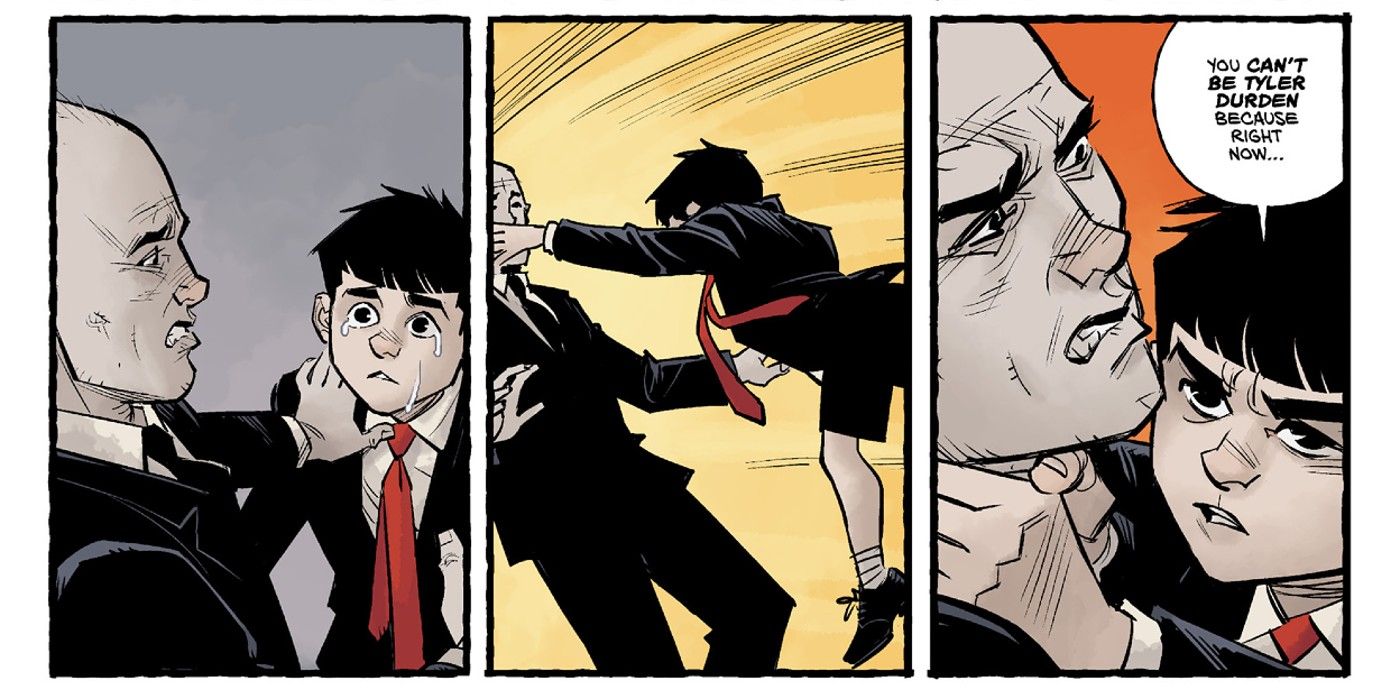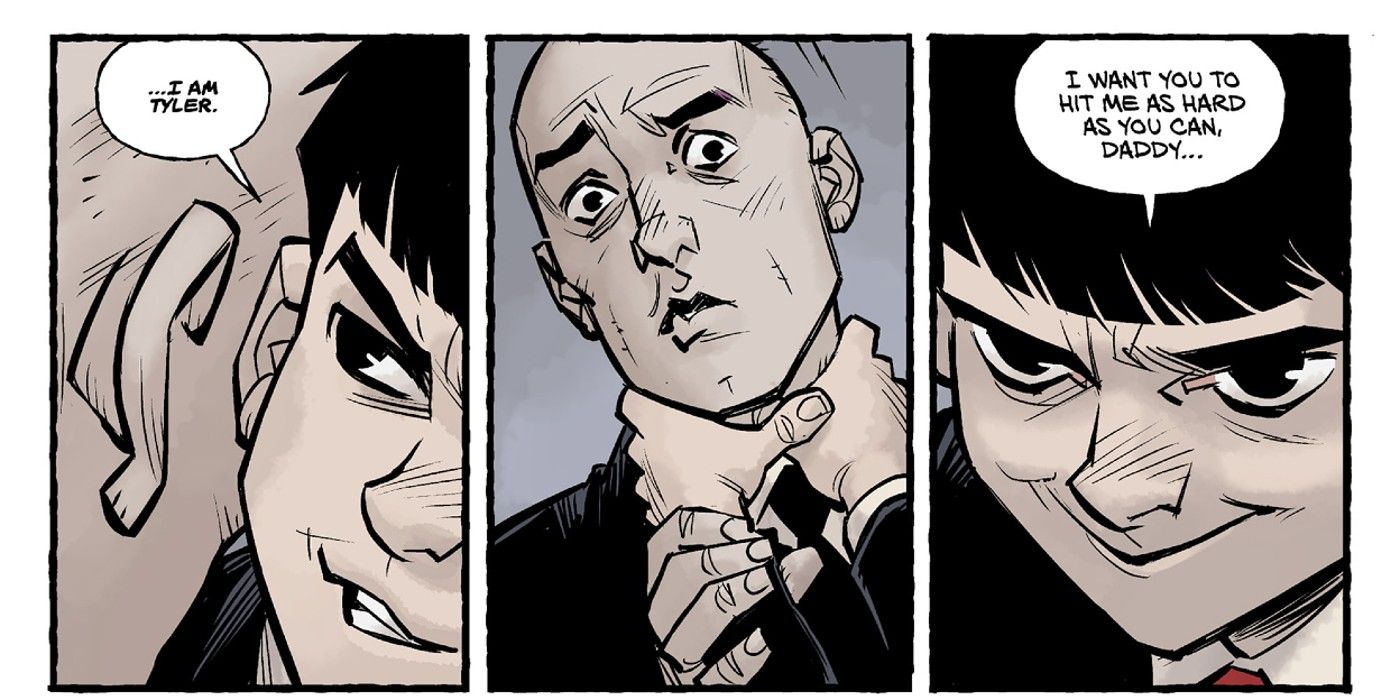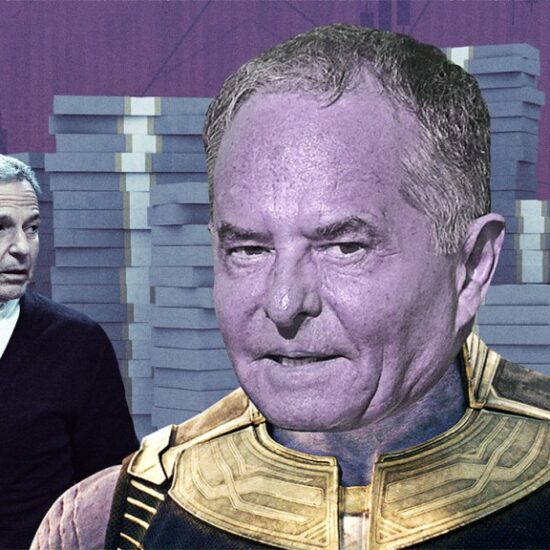
The biggest twist from the original Fight Club is recontextualized in Chuck Palahniuk’s Fight Club 2, which posits that rather than simply a manifestation of the unnamed Narrator’s psyche, antagonist Tyler Durden is something far more complex: a psychic disease, one that has propagated itself through the Narrator’s genes for generations.
The eighth issue of Fight Club 2 – by Chuck Palahniuk, Cameron Stewart, Dave Stewart, and Nate Piekos of Blambot – finds Tyler Durden speaking to the Narrator in his head, revealing in the process that he far predates the Narrator’s mental health struggles, in fact far predating the Narrator himself.
Tyler Durden Is A Meme, Not A Personality
With this radical change to Tyler Durden’s nature in Fight Club 2, Palahniuk recontextualizes the viral spread of Durden’s ideas in the original. Rather than a person, or a personality, Durden can be personified, embodied in individuals as a way to further its own ends – just like a disease. As Fight Club 2 #8 explains, The Narrator’s grandfather, great-grandfather, great-great-grandfather, and on back through the family line were all hosts previously. The Narrator was infected after seeing his parents’ marriage crumble before him. Now, at nine years old, his son is being infected by Tyler, who may be the most perfect host yet created.
The Narrator’s Son Is Next In Line To Become Tyler Durden
Chuck Palahniuk provides a further context in an interview with MTV, calling Tyler “a parasitical meme that has found a host or created a host in every generation going back for all of human history.” This revelation puts a completely different spin on the themes of Fight Club, especially in regard to the original book. The book ends with the Narrator awakening in a mental hospital, where his followers remain loyal to Tyler’s ideas even though Tyler is “dead.” Certain ideas live on well beyond the person who created them. This directly ties into themes of hypermasculinity present in the original.
Fight Club shows how such toxic masculinity can spread like a disease, infecting men in need of direction, as continues to be the case throughout the comic book sequel series. Such masculinity proves to be generational, with the ramifications of the past resurfacing in the present. That’s what the Narrator has been living through in the sequel series, as his own marriage begins to crumble and his son begins adopting Tyler’s habits, including experimenting with nitrate. To quote Shakespeare’s Merchant of Venice, “the sins of the father are to be laid upon the children,” and in the Fight Club franchise, sin is personified in the form of Tyler Durden.
Source: MTV
















